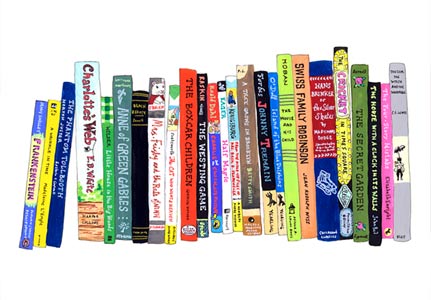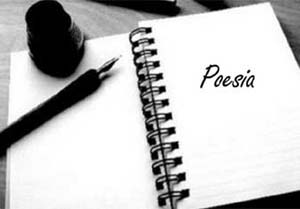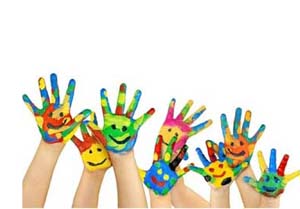 |
|
 |
|
| Visite: 1566 | Gradito: |
Leggi anche appunti:Introduzione generale alla poetica di Luigi PirandelloIntroduzione generale alla poetica di Luigi Pirandello La luna e i falo' - cesare paveseLA LUNA E I FALO' CESARE PAVESE INTRECCIO E STRUTTURA E' piuttosto Donne nel mondoDonne nel mondo Nel gennaio del 2004,finito lo svezzamento della |
 |
 |
A voice from Native American culture: House made of Dawn by N. Scott Momaday
House Made of Dawn, by N. Scott Momaday, was conceived first as a series of poems, then replanned as stories, and finally shaped into a novel. In writing House Made of Dawn, Momaday wanted to give a rich description of Indian life and to explore some of the issues and conflicts that faced the Native American community in the twentieth century.
The novel tells the story of a young Native
American man, Abel, caught between two worlds - his heritage on the reservation
and the industrialized world of contemporary
The main important theme treated narrating Abel's story is the expression of Native American culture, traditions and ceremonies through storytelling[1]; in the text punctuation is used according to oral pauses and not according to grammar rules and the author describes Indian culture, traditions and ceremonies using the techniques of stream of consciousness and flashbacks and entering in the characters' memory (past and present coexist).
Thanks to Indian traditions and storytelling it is possible, in Momaday's opinion, to oppose American white men's culture, based on money, industrialization, advertising and so on: as a matter of fact Native American people own and remember traditions, songs and tales which can be the true answers to their questions about existence, about life, answers given by imagination, senses and experiences. In writing his own novel, Momaday uses a combination of oral tales and personal imagination and experiences: Momaday's storyteller great-grandfather passed on to him the heritage of storyteller by telling him stories behind Native American Culture.
Many historical and cultural stories are told by two spiritual figures, as Father Olguin and the Priest of the Sun. Momaday learned Native American stories as a child: Children have a greater sense of the power and beauty of words than have the rest of us in general[2]. In this novel the method of transmission is the same, orally, though in this case in the context of a sermon. Similarly, the Priest of the Sun learned the stories from his grandmother, who was a storyteller, she knew her way around words. She never learned to read or write.
'My grandmother was a storyteller; she knew her way around words. She never learned to read and write, but somehow she knew the good of reading and writing; she had learned how to listen and delight. She had learned that in words and in language, and there only, she could have whole and consummate being. She told stories, and she taught me how to listen. I was a child and I listened. She could neither read nor write, you see, but she taught me how to live among her words, how to listen and delight. 'Storytelling; to utter and to hear . . .' And the simple act of listening is crucial to the concept of language, and more crucial even than reading and writing, and language in turn is crucial to human society.
So, in Native American world the most meaningful thing was not being able to read or write but to listen and to respect words, because only listening, people can become part of a society and assure the survival of a culture; moreover words, powerful words, are the essence, the origin of everything and they are the basis of oral tradition: words are indestructible, eternal.
When she told me those old stories, something strange and good and powerful was going on. I was a child, and that old woman was asking me to come directly into the presence of her mind and spirit; she was taking hold of my imagination, giving me to share in the great fortune of her wonder and delight. She was asking me to go with her to the confrontation of something that was sacred and eternal. It was a timeless, timeless thing; nothing of her old age or of my childhood came between us.
The Priest of the Sun went on to say that the difference in language between the two cultures, Native American and "white man's world", is the value placed in words. In white man's world there are words by the millions, on pamphlets and papers, letters and books, bills and bulletins, commentaries and conversations[3]. For his grandmother, on the other hand, the word was a sacred object, attached to a story close to her thoughts and her experience. Words could never be sold, and she would never throw her words away, also because she saw language as a remedy for sickness, not only of the mind, but of the earth.
And be assured that her regard for words was always keen in proportion as she depended upon them. You see, for her words were medicine; they were magic and invisible. They came from nothing into sound and meaning. They were beyond price; they could neither be bought nor sold. And she never threw words away.
The song House made of Dawn encapsulates a number of Native American ceremonial practices and is what Momaday uses to begin his novel, both in the prologue and, of course, the title of his novel itself.
Ben Benally sang this song to Abel on a hill in
![]()
House made of dawn,
House made of evening light,
House made of dark cloud,
House made of male rain,
House made of dark mist,
House made of female rain,
House made of pollen,
House made of grasshoppers,
Dark cloud is at the door.
The trail out of it is dark cloud.
The zigzag lightning stands high upon it
Male deity!
Your offering I make.
I have prepared a smoke for you.
Restore my feet for me,
Restore my legs for me,
Restore my body for me,
Restore my mind for me,
Restore my voice for me.
This very day take out your spell for me.
Your spell remove for me.
You have taken it away for me;
Far off it has gone.
Happily I recover.
Happily my interior becomes cool.
Happily I go forth.
My interior feeling cool, may I walk.
No longer sore, may I walk.
Impervious to pain, may I walk.
With lively feelings, may I walk.
As it used to be long ago, may I walk.
Happily may I walk.
Happily, with abundant dark clouds, may I walk.
Happily, with abundant showers, may I walk.
Happily, with abundant plants, may I walk.
Happily, on a trail of pollen, may I walk.
Happily may I walk.
Being as it used to be long ago, may I walk.
May it be beautiful before me,
May it be beautiful behind me,
May it be beautiful below me,
May it be beautiful above me,
May it be beautiful all around me.
In beauty it is finished.
The song, both in its structure and in its words, expresses a perfect harmony and communion with universe and it seems a sort of prayer; everything is balanced and controlled: dawn is made up for evening light and male elements are integrated by female ones. Dawn symbolizes a new era, a better condition after a moment of pain: as a matter of fact the journey must be happy and beautiful and it must end with a restoration (may I walk.restore my voice for me).
Bibliografia e sitografia
Bibliografia:
Sitografia:
Storytelling is the ancient art of conveying events in words, images and sounds often by improvisation and it has existed as long as humanity has had language. Traditionally, oral stories were passed from generation to generation, and survived solely by memory but in modern times, with written Medias, this has become less important.
 |
| Appunti su: native American tradition in house made of dawn, E2809CHouse made of dawn House made of evening light Dark cloud is at the doorE2809D These lyrical w, |
|
| Appunti Poesia |  |
| Tesine Educazione pedagogia |  |
| Lezioni Inglese |  |